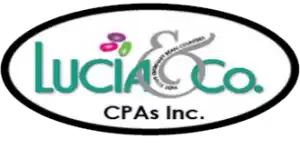Tag: financial planning
2024 Tax Changes to Plan For

As we step into another year, it’s crucial to stay ahead of the Internal Revenue Service’s (IRS) latest 2024 tax changes. These adjustments, often influenced by economic factors such as inflation, not only affect the way taxpayers file their taxes but also have broader implications on their financial health and planning.
Understanding the 2024 tax changes is essential for several reasons. First, it allows individuals and businesses to plan their finances more effectively. Knowing the tax brackets, for instance, can aid in budgeting and investment decisions. Secondly, staying informed plays a…
Unlock Small Business Tax Deductions

Navigating the complexities of small business tax deductions can be a daunting task for business owners. Understanding how to effectively utilize each small business tax deduction available is crucial for minimizing tax liabilities and maximizing profitability. Lucia & Co. CPAs is dedicated to guiding businesses through the intricate pathways of tax deductions, ensuring that every possible avenue for tax savings is thoroughly explored and utilized.
What is a Tax Deduction?
A tax deduction is a critical aspect of the taxation system, allowing businesses to subtract certain expenses from th…
Accrual Accounting: Unlock Your Business’s Financial Clarity

Accrual accounting, a cornerstone of modern financial management, offers businesses an in-depth lens into their financial well-being. At Lucia & Co. CPAs, we’ve seen firsthand the transformative impact of adopting the right accounting practices. By recognizing income and expenses as they occur, rather than merely observing bank balances, accrual accounting provides a holistic perspective, enabling businesses to make strategic decisions with greater confidence.
As you navigate the complexities of business finance, understanding accrual accounting can be your beacon, shedding light on the n…
Proactive Tax Planning Tips for Success

Proactive tax planning is a strategy I strongly advocate for as a CPA, having observed many small business owners rely on outdated ‘reactive’ tax planning. This traditional approach involves monitoring sales and expenses throughout the year, and then using these figures to determine tax liabilities at year-end, often leading to missed opportunities.
Reactive tax planning tends to be a passive process, where business owners only consider their tax situation when the filing deadline approaches. This can result in a scramble to gather documentation and make last-minute financial decisions, which…

